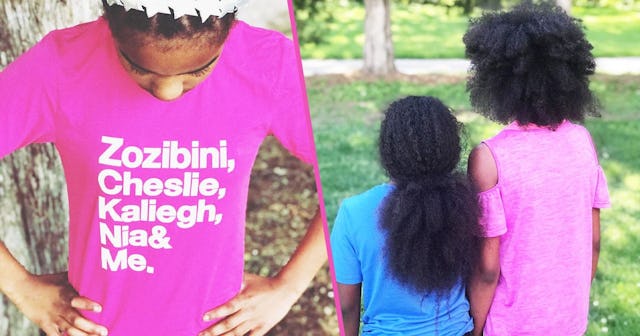Everyone Warns Parents About Raising Teens--But What About Tweens?

I was at my grandmother’s visitation, seeing several older cousins and childhood friends I hadn’t seen in close to a decade. As we walked in, with two of our four kids in tow, four different parents gushed how big the kids were. Then they filled me in on their own children, all of whom were now teens or young adults.
They all said the exact same thing, gesturing toward my tween daughter. “Just wait,” they warned intensely, lowering their voices and driving their eye gaze into ours. “Wait until your kids are teenagers.” They shared the ups and downs of parenting teens—mostly bad attitudes, alcohol consumption, social media and phone addiction, and romantic relationships gone array. With each conversation, my husband and I gave each other the look only long-time committed partners can share—the one that says, we need to discuss this later.
https://www.instagram.com/p/B7YabBqhECR/?utm_source=ig_web_copy_link
On our drive home, we chatted about the encounters. Is raising teens the ultimate worst phase a parent can be in? Because here we are, raising four children, including two tweens, and it’s no walk in the park.
Perhaps it’s the number of kids we have—four in total. Or is it the fact that raising two tweens, plus a first grader, and a toddler is just chaotic? We feel like every single day, we’re thrown some sort of new curve ball.
Why does seemingly every seasoned parent warn us about how hard the teen years are—years we should apparently greet with dread and surrender—but there’s no preparation for raising a tweenager? Where is the PSA on parenting children ages 9 to 12? Better yet, where can we sign up for some sort of raising-tweens education class or support group for those in midst of it?
What’s so challenging about tweens? Oh, let me count the ways. For starters, there’s the challenges that come with puberty. Girls typically start puberty between ages 9 and 13, while boys start between ages 10 and 14. The hormone surges alone are worth a few dozen parent-child interventions—or a free supply of wine for the parents.
https://www.instagram.com/p/Bxr07VuB4FZ/?utm_source=ig_web_copy_link
Pair the ups and downs of some serious body changes and mood swings with cell phones, and it’s enough to drive any parent to the point of no return. Social media use is leading to increased levels of depression and anxiety in kids—which means not only are we talking about breasts and body hair, but mental health.
School work gets much more challenging—and much, much more stressful—in late-elementary and middle school years. Don’t get me started on the homework load and lack of recess. I know everyone says we need to prepare kids for college ASAP—but it’s truly over the top how much we dump on 10-year-olds.
Let’s talk about the questions. My tweens have asked me how long sex takes. Um, how do I answer that one? There’s no parenting guidebook for some of their inquiries—all of which are asked at bedtime, because why not? Mommy is tired, kids. But I’m here for the open, honest conversations that I’d rather have with them myself than their peers on the playground.
There is hope—because parenting tweens is not all doom and gloom. Kids caught between young childhood and the teen years are still willing to do some child-like activities—willingly. My tweens will still play with dolls, action figures, and coloring books at times—especially if their younger siblings are around. They are also OK with hanging with their grandparents, aunts, and uncles—and aren’t yet in the phase where everyone besides their BFFs are uncool. My tweens sometimes select a “baby” movie to watch—reminiscing over their younger years.
There’s also still opportunities to teach them—and they listen and respond most of the time. This includes the basics like table manners, but also some larger life lessons involving resiliency, apologizing, and making careful friendship choices. Tweens are still developing their sense of purpose, discovering their talents, and might explore multiple extracurricular activities.
I also love that we’re past diapers, bottles, and potty training. I don’t have a single kid who I still need to break from a pacifier. I’ve sent three kids so far to kindergarten—and it didn’t kill me. I don’t have to buckle anyone into the vehicle anymore besides my toddler—because they can now DIY. They can make their own PB&J, shower themselves, and work the TV remote. There’s beauty in independence.
I consider parenting tweens a privilege, because they have some endearing qualities, including their curiosity about the world. I’m still cool enough to give them a hug and kiss goodnight. However, I feel them slowly pulling back—beginning to form their independence and transition into teens. Am I scared? Somewhat. I remember how I was as a teen—and I’m preparing for karma.
I wish more experienced parents would give those of us parenting tweens the wisdom we need for now instead of teaching us to dread what’s coming next. Tweenhood is a parent’s opportunity to grow with their child—and we need all the encouragement we can get. Now excuse me while I freak myself out by Googling vaping statistics.
This article was originally published on